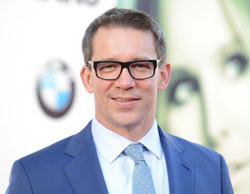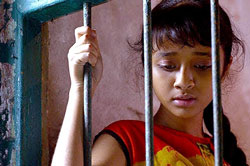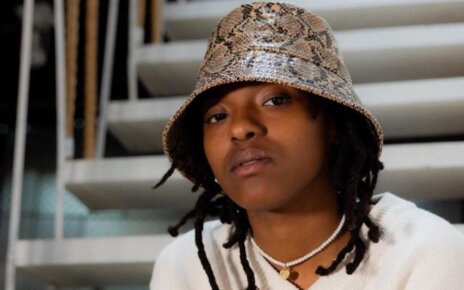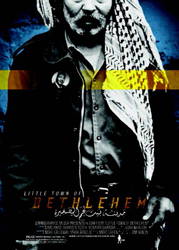Q. When did you realize you wanted to work in television?
A. I remember trying to make television happen when I was 30. I’d written my first couple of young adult novels for Simon & Schuster. My book money wasn’t quite enough to live on, and I was a TV fan. I ended up writing a letter to the president of CBS television, introducing myself, and including the bound galleys of my first novel and letting him know I wanted to write for television. In some sort of miracle that will never be repeated, he read the novel, passed it along to the producers of Dawson’s Creek and asked me to develop a romantic comedy for television. That project became Cupid. I went from barely scraping together a living in Texas as a young adult author to having my own show on ABC in about 18 months. I’m not sure I realized at the time that I’d hit the lottery. I think I realized it after the business slapped me around for a few years after that initial success.
Q. What advice do you have for college students who are looking to pursue the television industry?
A. Even though this was not the path I followed, it’s the path that the vast majority of television writers I know followed. If you want to write for television, move to Los Angeles. It’s where the work is. Then do whatever you can to get a job on a television series, ideally one that you’d watch or want to write for. Do whatever you have to in order to get your foot in the door.
Network.
Then, importantly, if you’re lucky enough to get that first job as a PA or an assistant, be the best PA or assistant you can be. Go on that coffee run with a smile on your face and a song in your heart. Be well-liked. Be effective in your job. If you do that, good things will come your way. Producers will eventually read your scripts. If they like them, they’ll pass them to their agents with the all important, “and he/she is a great human being, too.” Maybe you’ll even get a freelance script for the show you’re on.
Note: Do not lead with your ambition. You’re likely going to have to do grunt work for a season or two before anyone volunteers to read you, help you out. Every writer there knows you’d rather be a writer than a PA, that you’d rather have their job. Still, it’s good form to not constantly have that thought bubble over your head.

Q. What is something you wish someone told you about working in television?
A. That I would get rewritten. I began my career as a novelist, and no one ever touched my work. I had a tough time adjusting to handing my script over to a boss who would rewrite me. I didn’t handle it well at all.
But that’s the job as a member of a writing staff. You are trying to write in the voice of the show. The voice was usually determined by the creator/showrunner. Your job is to minimize his/her work load by getting it as close to an episode he/she would’ve written.
You can’t be too precious if you’re working on someone else’s show.
Q. What was your first job in entertainment and what did you learn from it?
A. My first job was as a staff writer on Dawson’s Creek first season. The best thing I learned was how to get into scenes late and out of scenes early, an incredibly necessary skill for television writers. The script that got me most of my early work in Hollywood was this indie My Dinner With Andre-style spec script. It was 110 pages of dialogue. People talking over a meal. It just rambled and rambled. In TV, that’s almost never an option.
Q. What is your writing process like?
A. I get up very early — 3 a.m. I try to be in the office by 4 a.m. My best writing hours are before the phone starts ringing, before people start knocking on my office door asking me questions. I try to get close on my first draft. I’m not one of those writers who slaps stuff down and then begins the real work on the second draft. I still rewrite and polish a great deal, but I don’t start the process with a just-get-something-down draft.
Q. What was your creative process when you came up with the original concept for Veronica Mars? How has it been doing a movie and seeing how much the fans care about this show?
A. Veronica Mars was originally going to be my next book for Simon & Schuster, but I started working in television, and eventually I realized I’d never get to the novel, so I gave back my advance money and wrote the original Veronica Mars pilot on spec. It had the advantage of being an idea I had in my head for several years before I ever wrote a draft.
I’d been a high school teacher for several years, and I’d wanted to do a teen show. Freaks and Geeks had just been cancelled, and I couldn’t have loved that show much more than I did. If that show with it’s low-concept, beautiful coming-of-age stories couldn’t stay on the air, I figured my best bet to get a teen show on was to write something high concept — teenaged private eye! — and let that high concept be my Trojan horse in order to sneak a teen coming-of-age show on the air.
The Kickstarter project was incredibly fulfilling. After the show’s cancellation, it seemed like the only question anyone asked me was whether there would be a movie. Not many movies get made based on low-rated CW series. Up until the amazing outpouring of support on Day 1 of the Kickstarter project, I secretly feared I’d just been listening to 20, or so, loud Veronica Mars fans about their desire for continuation and that we might launch the project and have no one show up. That would’ve been a humiliation I might’ve never recovered from.
Q. How has your time been so far on iZombie? How is it different from your time on some of your previous shows?
A. iZombie has been the happiest experience of my career. It’s the first show I’ve done where the creators, the studio, the network, the cast all seemed to be in sync from the beginning. We’ve been treated so well. It’s still an incredibly tough job with long hours, but when everyone is moving in the same direction and you’re not wasting time and energy on creative standoffs, it makes it a joyful ride.
This interview is part of the “Unsung Heroes” series, which aims to better educate students about the television industry. Read more at http://tvwithvictoria.com/tvs-unsung-heroes.
IMAGE TAKEN from www.rollingstone.com




